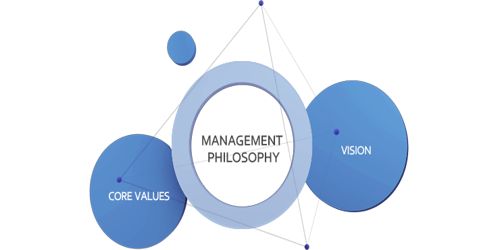Management philosophy: A key feature of the environment in any organization in management, the set of ideas and beliefs held by the executives about how people should be managed. It is a set of beliefs as used by a person in an administration point to direct the decision making procedure.
Components of management philosophy: The components of are as follows –
(1) Values: Underlying management philosophy is the values held by executives and other managers and supervisors. A value is something that is prized or esteemed.
(2) Ethics: Ethics is m extremely important aspect of management philosophy. Ethics can be defined as the normal values, rules, or standards governing the conduct of a particular group, profession, or culture.
(3) Benefits and assumptions about people: Douglas McGregor dramatized the impact of management philosophy by analyzing the assumptions manager make about people in organizations. He described two sets of assumption, Theory X, and Theory Y, that are qualitatively different and lead to distinct leadership behaviors and human resource policies and practices. A Theory X set of assumptions essentially holds that the average person dislikes work and responsibility, has little ambition and primary wants security. A Theory Y set of assumptions involves a more positive view of human nature.















